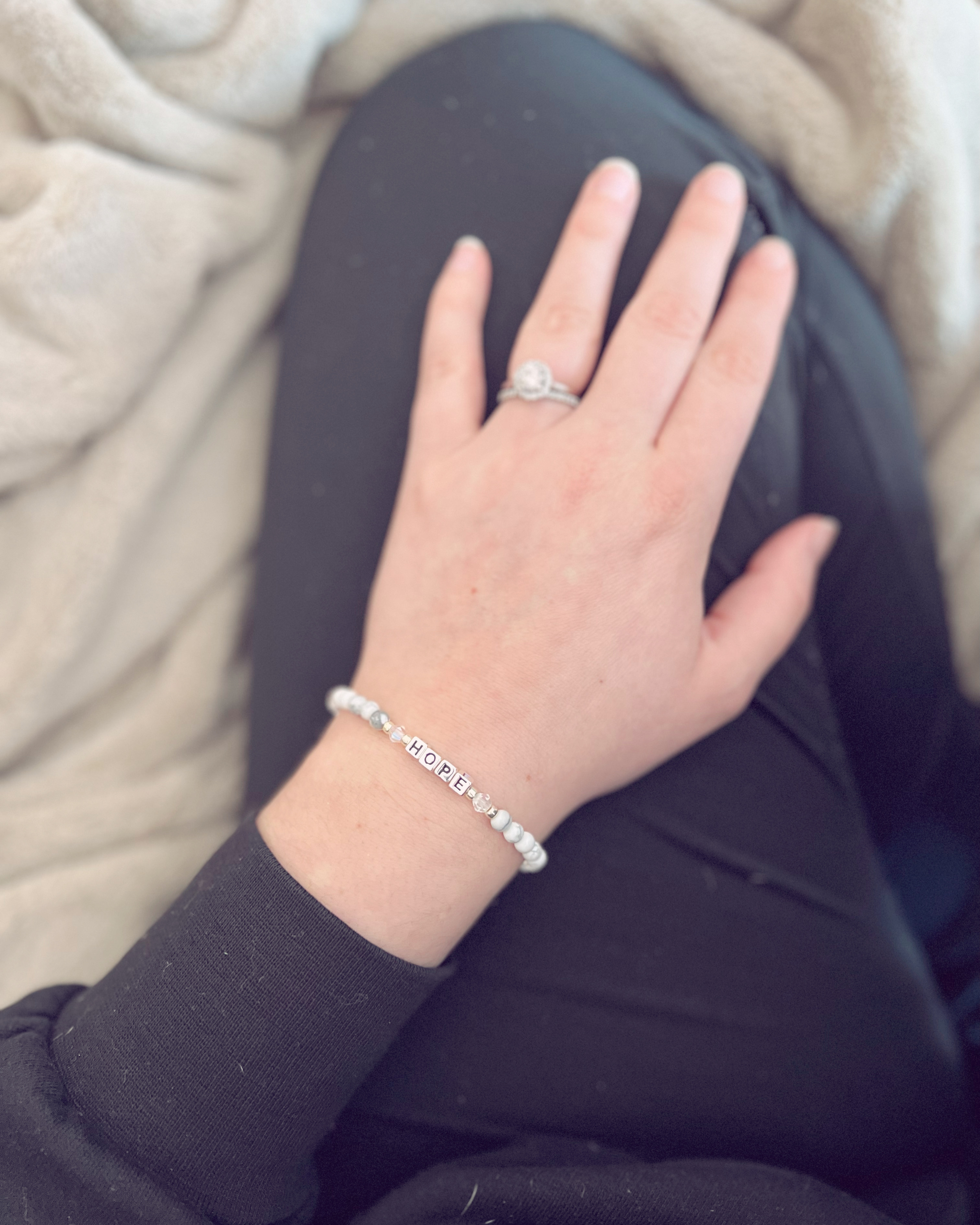Miscarriage Stories: What to Expect When You Miscarry
TRIGGER WARNING: This post is about my experience with miscarriage. While many women face this type of event, some are not in a place to read about my truths.
Give yourself the space and time you need before reading this post.
My Miscarriage Story
There was a lot I didn’t know and couldn’t understand about miscarriages, until I had one.
Miscarrying takes your mind and body on a long, winding roller coaster through Hell. Just when you think it’s over, there are more twists and turns you couldn’t have expected.
Finally, the ride is done. You’ve made it back to the platform, but shortly after the relief of being safely rooted to the ground, comes dizziness and nausea from the motion of the ride. This is miscarrying.
A terrible, grief-stricken event.
Where, after bouts of bad news, even the “good news” is the best of the worst, and isn’t anything to celebrate.
I realize this topic is drab, but I think it’s important to talk about personal experiences, even if those experiences are undesirable and scary.
EDIT: I wrote this post when I was in the raw, real, and newly grieving point in my miscarriage story.
In the days following my miscarriage, I came to learn I had experienced an ectopic pregnancy. You can read more about that here.
Miscarriage Stories: 5 Things to Know
There is so much to know about miscarrying. These are the 5 things I learned after my experience:
1. Lasting Physical Pain
In my naivety, I thought miscarriages to be a relatively quick process. I figured the body dismisses the pregnancy, for one reason or another, and that was kind of it.
To the best of my knowledge, the physicality was fairly uncomplicated. I’ve been wrong about a lot of things in my life, but I don’t think I have ever been more wrong about this.
Stretched out over weeks is cramping, blood draws, and more.
For women needing a D&C (dilation & curettage) and/or further surgery, the physiological suffering can be even longer. I had an ectopic pregnancy, so my physical pain lasted weeks.
The physicality of miscarriage is, in fact, a drawn out, painful process.
2. Cruel Reminders
For several weeks after my miscarriage, I was constantly reminded of the loss.
Every time I used the bathroom, I saw clots and spotting.
Every time I looked at my arms and hands, I saw bruising from the countless blood draws and IVs I had endured.
Beyond that, I had to pack away newly purchased baby items and unboxed maternity attire.
After seeing the positive pregnancy test, I bought a few little items in anticipation for the baby: a panda bear lovey, a giraffe rattle, a big sister book for for daughter.
My maternity clothes proudly hung in my closet, awaiting the day I could show off my growing bump.
The emotional heartache of these reminders is something I had never considered.
3. Frequent Mood Swings
My emotions range from confusion to collected to numb and then a wave of overwhelming sadness washes over me.
It’s been weeks since the process began, and still, tears pour down my face while I completely collapse into a state of sorrow. The reality is, miscarrying is a harrowing event.
Plus, during this time, women’s hormones are completely unbalanced. The outcome wreaks havoc on a woman’s spirit.
4. A State of Wonder
I often find myself Wondering:
- “What could have been?”
- “Why did this happen?”
- “Was the baby a boy or girl?”
- “Would this baby have made our family complete?”
- “What could I have done differently?”
I didn’t know I would feel such a sense of longing throughout the weeks of woe.
5. Perpetuating Feelings of Guilt
With the doctor’s initial words, “I’m sorry, it appears you have lost the baby,” still ringing in my ear, he followed up with, “It’s not your fault; sometimes these things just happen.”
In the days to follow, I was told the same thing again and again and again, “It’s not your fault.”
And while it’s an incredibly important thing to hear, it’s also an incredibly challenging thing to believe.
I question every choice I made.
- “Did I take enough Vitamin D?”
- “I think I forgot to take the folic acid one day.”
- “Did I accidentally eat something that hurt the baby?”
- “I knew I shouldn’t have had that second cup of coffee.”
- “Should I not have laid on my stomach during that massage?”
And while logically, I know it’s not my fault, in many ways, I can’t help but feel like it is. Like my body let me down; like I let everyone down.
The guilt encroaches on every aspect of life.
My Miscarriage Story: Comforting Words
When sharing my miscarriage story, one person reached out with this, “It’s always a struggle to find the right words… ‘Sorry for your loss’ seems so overused… But it is a loss, and I am sorry.”
Those words felt so validating. Ultimately, that’s what miscarrying is: A long road of loss and grief. I imagine, as time goes on, the grieving process will level out, and life will feel lighter again.
It’s important to mention, everyone’s miscarriage story is different.
Just because my experience is described above, does not mean you’re able to translate those same feelings to all women.
There is no “right way” to grieve. The journey is different for everyone. If you want to talk about it, please do. If keeping to yourself feels better, do that.
Feel what you need to feel, and show yourself love and compassion throughout your journey.
